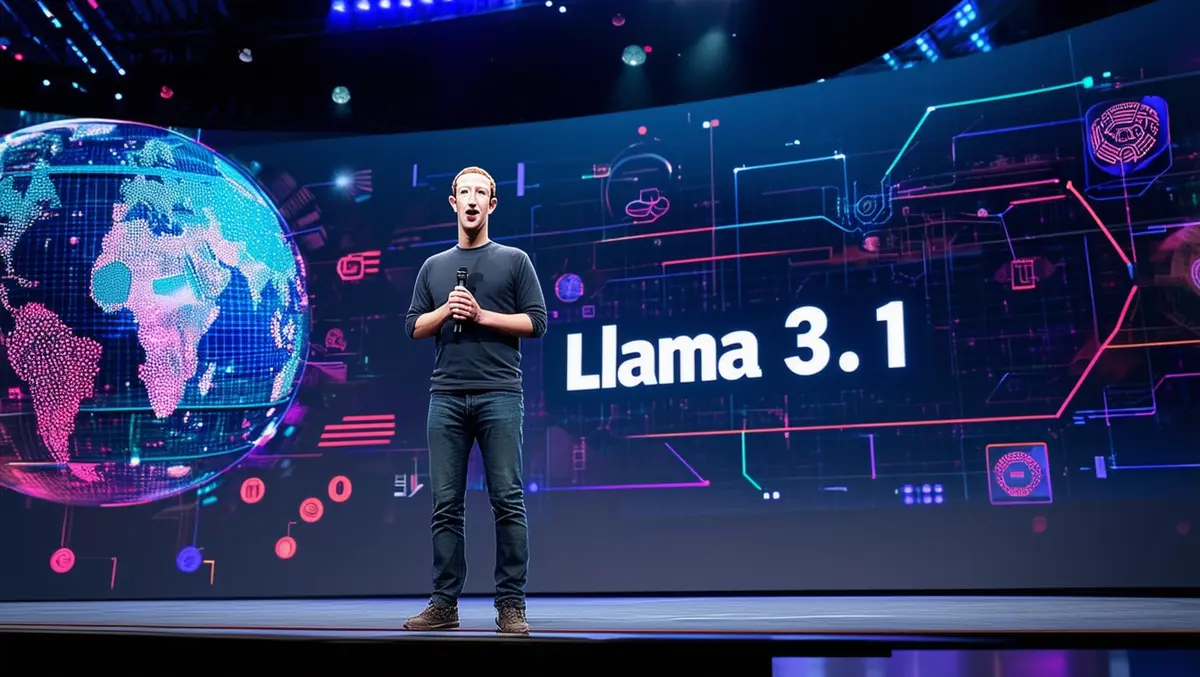
Meta unveils Llama 3.1 with advanced AI capabilities
Mark Zuckerberg has announced the release of Llama 3.1, the latest large language model (LLM) from Meta. The upgraded collection includes improved versions of the 8 billion (8B) and 70 billion (70B) models as well as the new Llama 3.1 405 billion (405B) model, which is the largest and most capable openly available foundation model to date.
Llama 3.1 models are designed to be multilingual and feature a significantly longer context length of 128,000 tokens. According to Meta, these models offer state-of-the-art tools and enhanced reasoning capabilities. Zuckerberg highlighted the advanced reasoning abilities of the Llama 3.1 405B, noting its proficiency in handling complex mathematics and coding queries. "These capabilities extend to assisting with everyday tasks such as homework and technical jobs like code debugging and mastering technical concepts," he said.
Beyond the core models, Meta is actively building out Llama with additional components to function as a comprehensive system. This includes a reference system and the introduction of new security and safety tools to promote responsible development. In support of expanded utilization, Meta has announced a request for comment on the Llama Stack API. This proposed standard interface is intended to make it simpler for third-party projects to integrate Llama models into their workflows.
Alongside the Llama 3.1 announcement, Meta has updated its AI product offerings in Australia and New Zealand. Users can now create images directly within Facebook, Instagram, Messenger, and WhatsApp by interacting with Meta AI. This feature can be accessed by looking for a blue circle icon within the apps or by typing @meta ai during chats. The new functionality allows users to turn their creative ideas into visuals instantaneously, enhancing posts and interactions with custom images generated on the spot.
These latest advancements reflect Meta's ongoing commitment to advancing artificial intelligence technology. As part of this commitment, Meta continues to seek feedback from the developer community to ensure that its AI tools, like Llama 3.1, are both powerful and responsible. The release of the Llama Stack API request for comment underscores Meta's focus on creating a collaborative environment for AI innovation.
Mark Zuckerberg is the co-founder and CEO of Meta Platforms, formerly known as Facebook, a company he launched in 2004 while still a student at Harvard University. Under his leadership, Meta has grown into one of the world's largest and most influential technology companies, reshaping how billions of people connect, share, and interact online. Zuckerberg is known for his focus on innovation and his vision of building the metaverse, a next-generation digital experience that integrates virtual and augmented reality.


